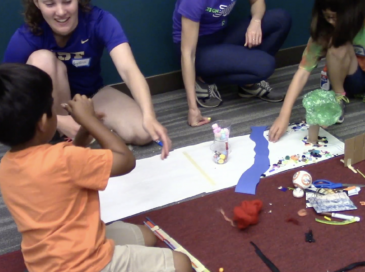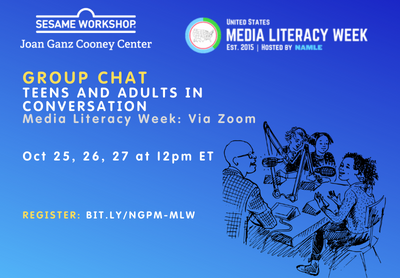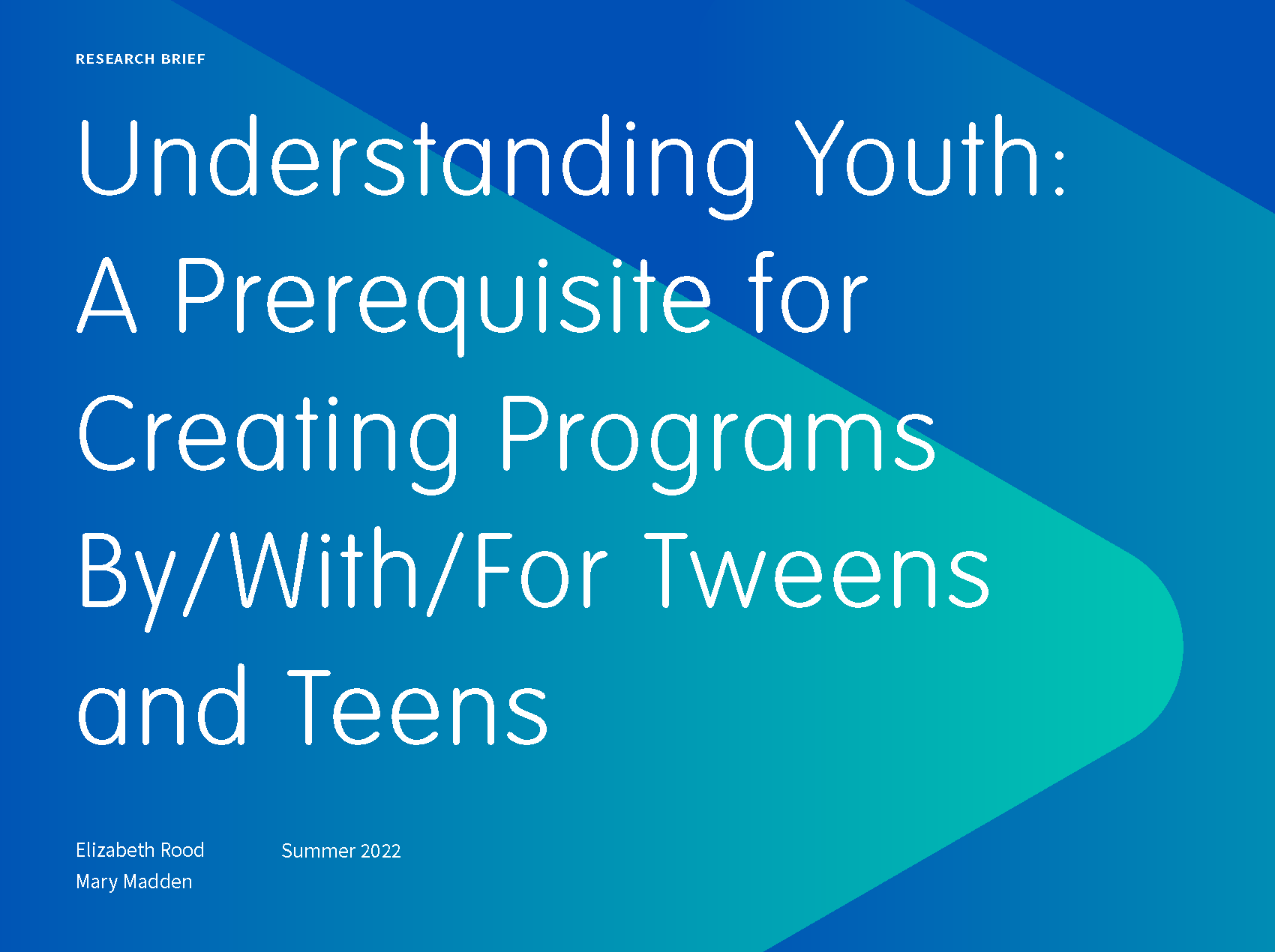On May 23, 2022, the Joan Ganz Cooney Center hosted a virtual workshop to support public media professionals in cultivating equitable, collaborative partnerships with tweens and teens. Part of the By/ With/ For Youth: Inspiring Next Gen Public Media Audiences initiative, the workshop invited producers, directors, and other individuals who are passionate about engaging youth in public media to engage in thoughtful discussions about the best ways for public media stations to deepen their understanding of tweens and teens, and how to leverage this understanding to create high-quality, youth-targeted content.
Cooney Center Senior Fellow and Associate Professor at the University of Washington Jason Yip delivered an informative presentation about strategies for effective adult-youth co-design. With “Examining Adult-Child Interactions in Participatory Design,” Jason summarized the theoretical basis of effective and equitable partnerships between children and adults in co-design projects. Theories were illustrated through vivid participatory design case studies from his own co-design work with KidsTeam UW.

Aligning with the workshop’s central topic (creating programs by, for, and with youth), Jason’s presentation spotlighted several tested strategies that adult creators can use to ensure that they are treating children as equal design partners, allowing youth to actively and equitably inform the process of designing technology and media.
Jason’s presentation covered youth co-design theories and methods that were successful in technology development contexts, and that can also be applied to digital media content creation He defines participatory design as a co-design strategy that allows users and designers to collaborate in the earliest stages of the design process, to develop effective new technologies. One type of participatory design that was highlighted in the presentation is cooperative inquiry, which involves children working with adults throughout the process of designing technology (Yip 2013).
Jason noted that projects that successfully leverage cooperative inquiry are founded on equal partnerships between children (product testers and informants) and adults (test facilitators and interpreters of children’s feedback). In equal partnerships, users and creators have equal standing, and have an equal voice in the creation process.
Jason suggested that the central ingredient for equal partnerships is balance: a state in which children and adults can equally contribute to projects.
Through illustrative video case studies from his own projects, Jason demonstrated how the concept of balance should be made manifest across the four dimensions of adult-child partnerships:
- Relationship-building
- Facilitation
- Design-by-doing
- Elaborating together
At the end of his presentation, Jason provided attendees with three actionable takeaways for creators to consider when implementing co-design:
- Equal partnerships exist on a spectrum and are not simply completely equal or unequal.
- The four dimensions of equal partnerships (relationships, facilitation, design-by-doing, and elaborate together) are connected.
- The participatory design framework can be used across any cases in which there are power differentials between users and designers (e.g., when designers are working with vulnerable populations).
Following Jason’s presentation, attendees were assigned to breakout rooms, where they read quotes shared by the Next Gen Public Media Youth Fellows. Each breakout room received quotes that centered on one of three topics: “Interactions and Relationships with Adults,” “Digital Platforms and Affordances,” and “Changes in Media Use from Middle to High School.” Each attendee shared one quote that was most compelling to them. Many rich ideas were generated from these sessions, providing attendees with actionable strategies for optimizing their work to more equitably center youth voices.
Afterward, attendees engaged in another breakout room session where they collaboratively reflected on the extent to which their projects were adequately addressing youth needs.
To end the workshop, all attendees reflected on one tangible step that they can take to further develop and apply their understanding of youth.
Attendees came away from the session with a stronger understanding of equitable ways to engage tweens and teens in media projects, a deeper understanding of the challenges and affordances that teens encounter when using digital media, and actionable steps for supporting participatory collaboration in their own projects and organizations.
Josanne Buchanan is a children’s media and psychology researcher who leverages high-quality arts and science research to support all content creators in developing excellent children’s media. Josanne has several years of experience developing educational digital media, consulting with media industry leaders, conducting user research, and working directly with children in the non-profit sector. Situated at the nexus between psychology and the screen, her work provides industry leaders with insights that are crucial for developing content that promotes diversity, inclusion, and prosocial learning. Her commitment to ensuring that all children see themselves fully represented on screen fuels her work to support producers, game-developers, curriculum specialists, and more.


